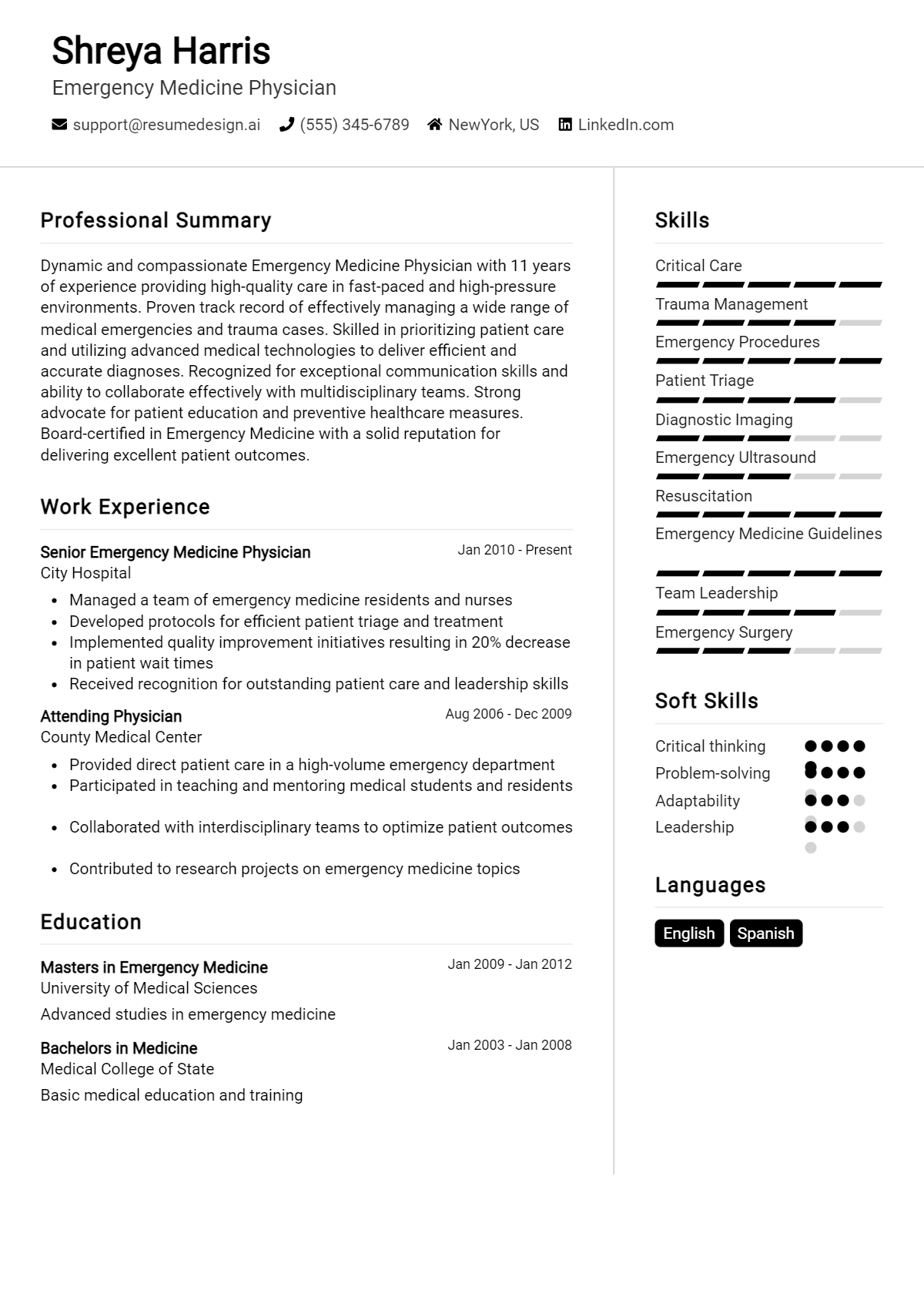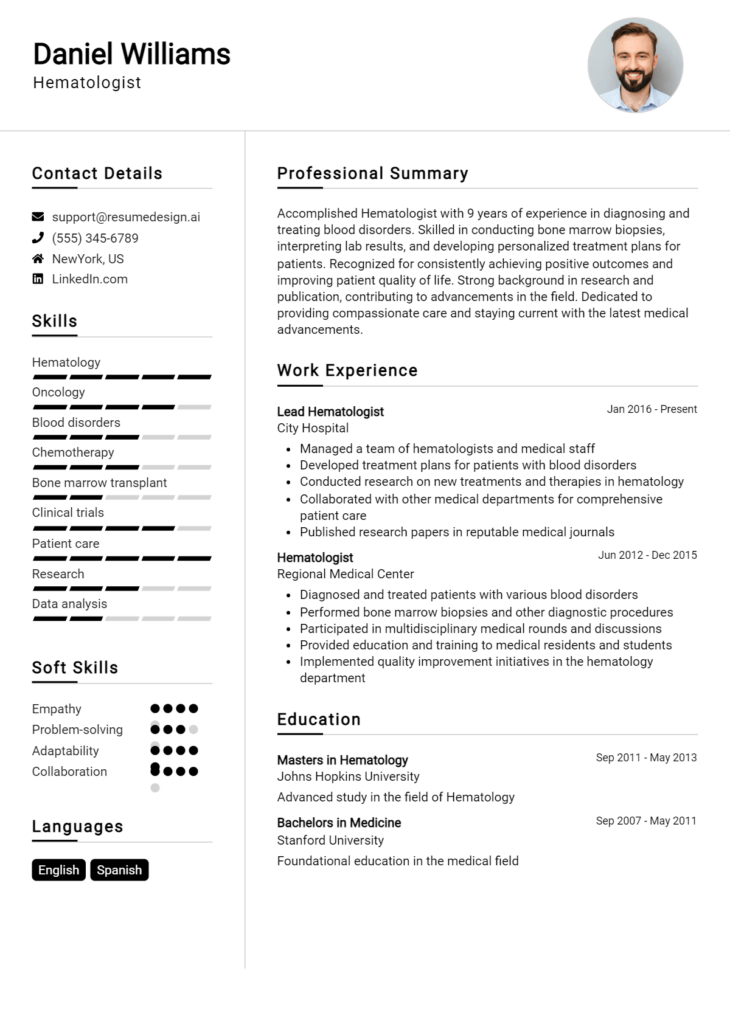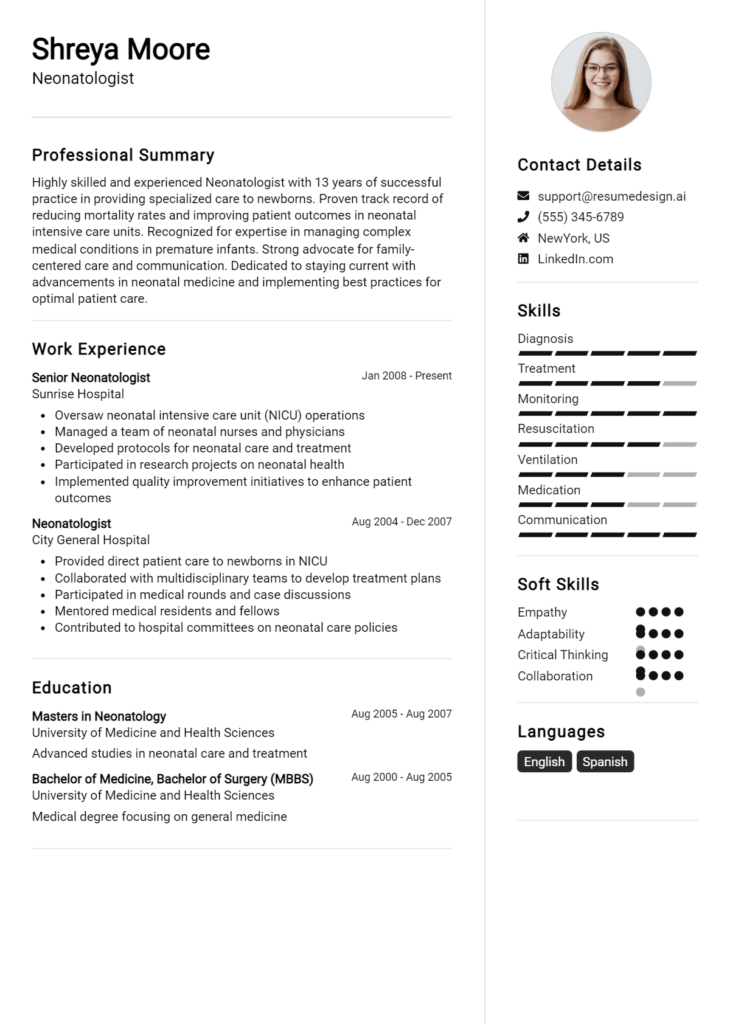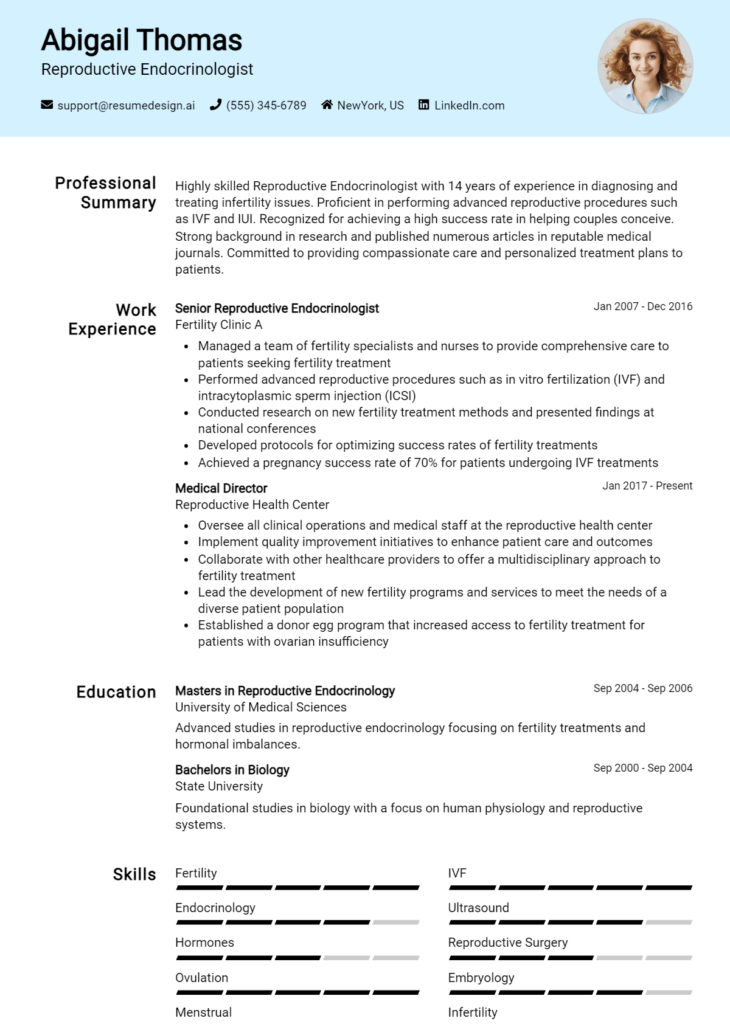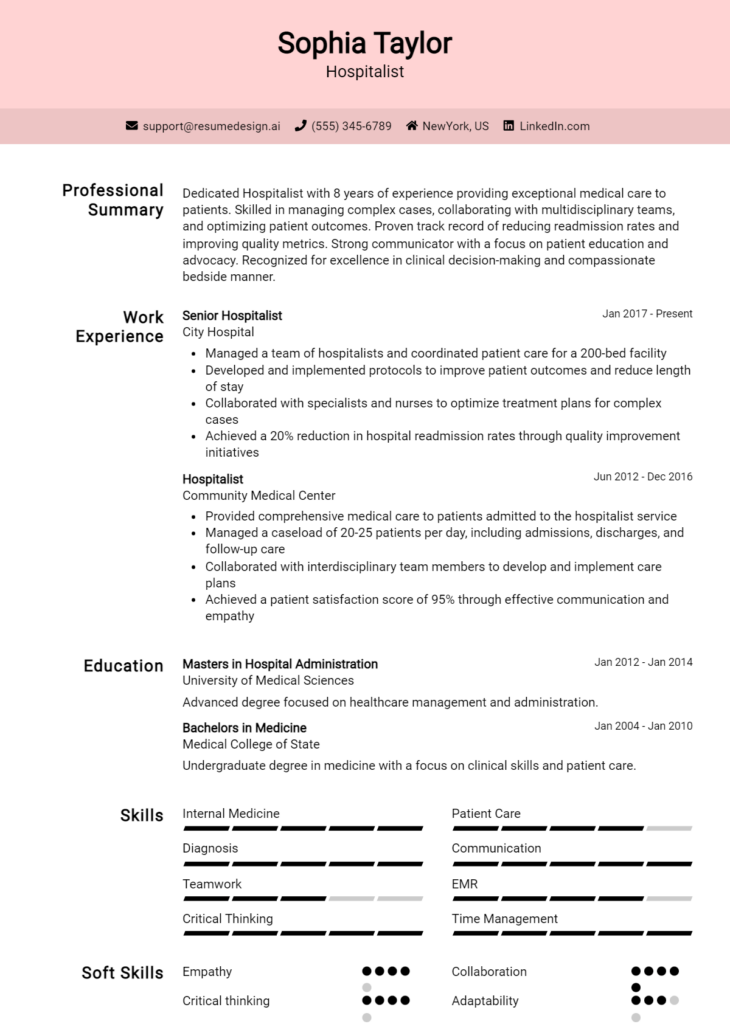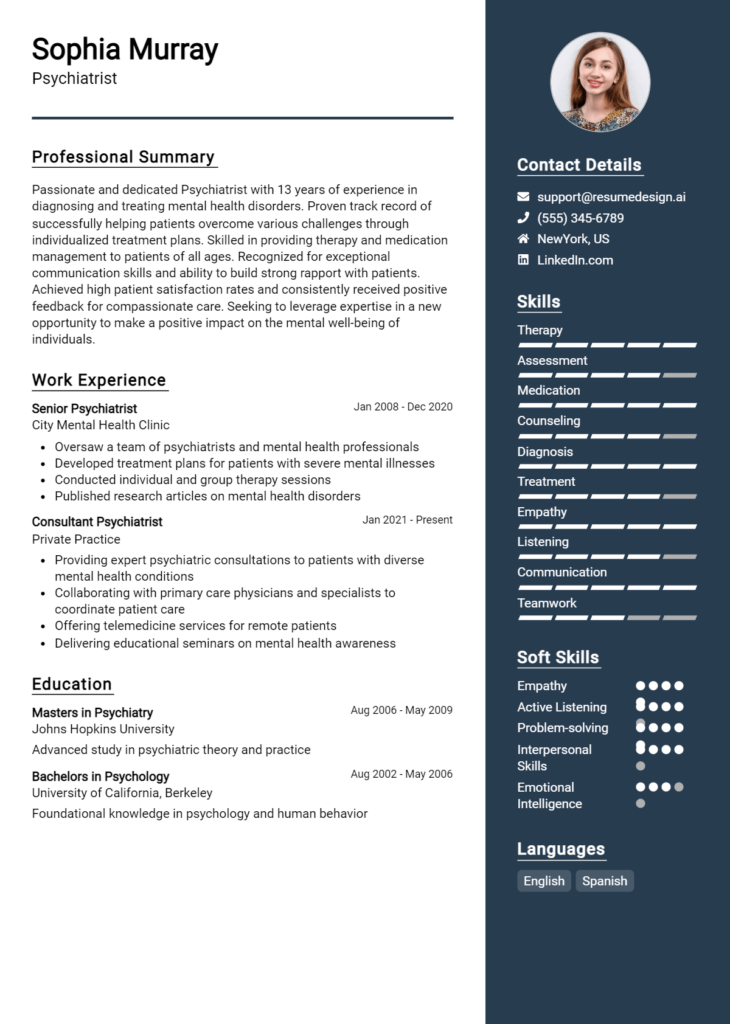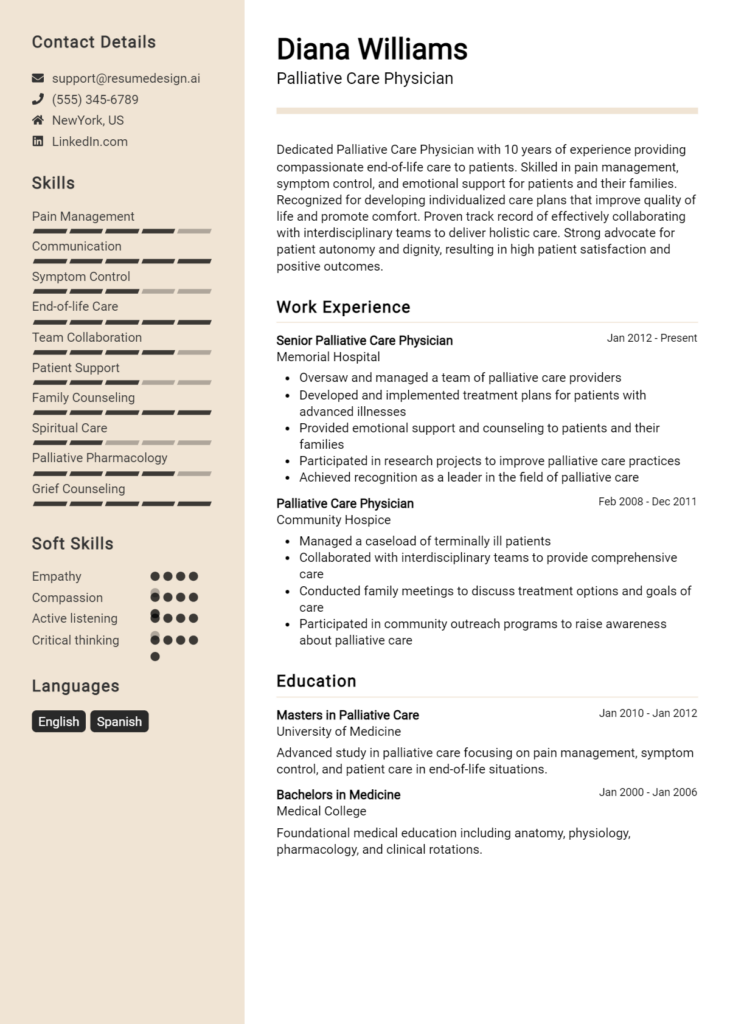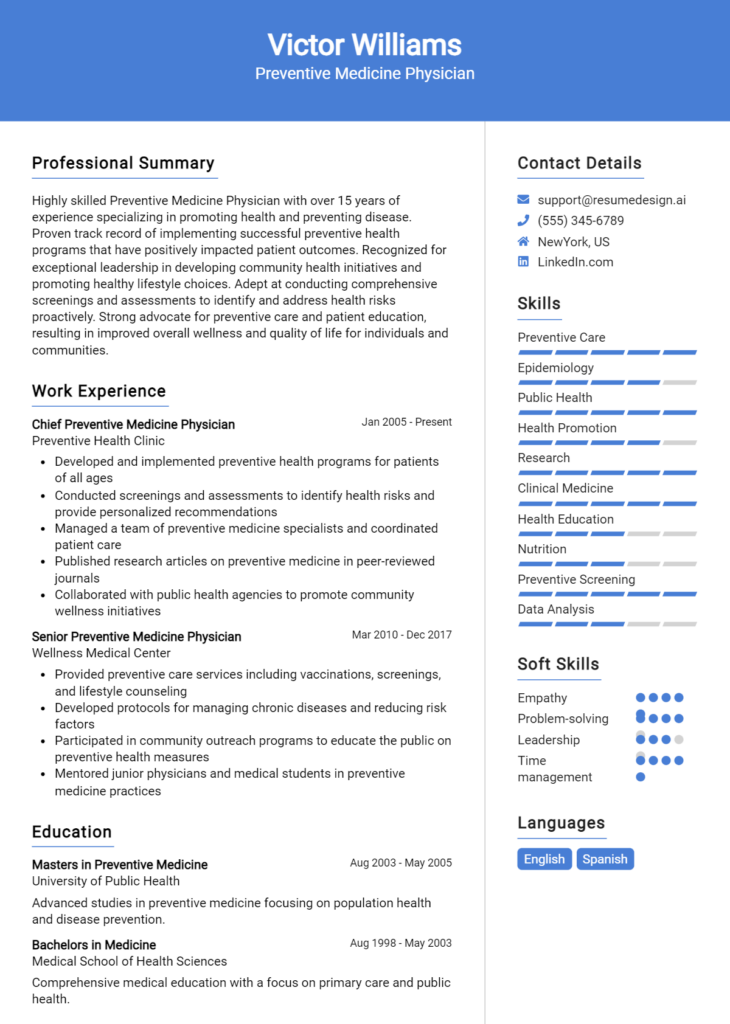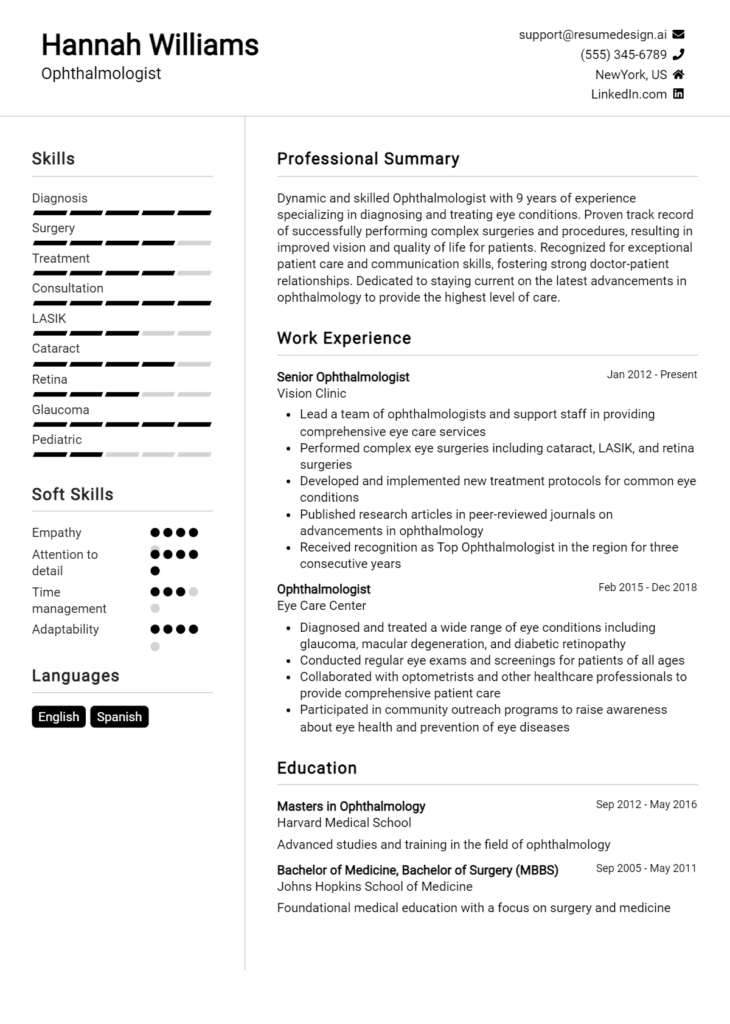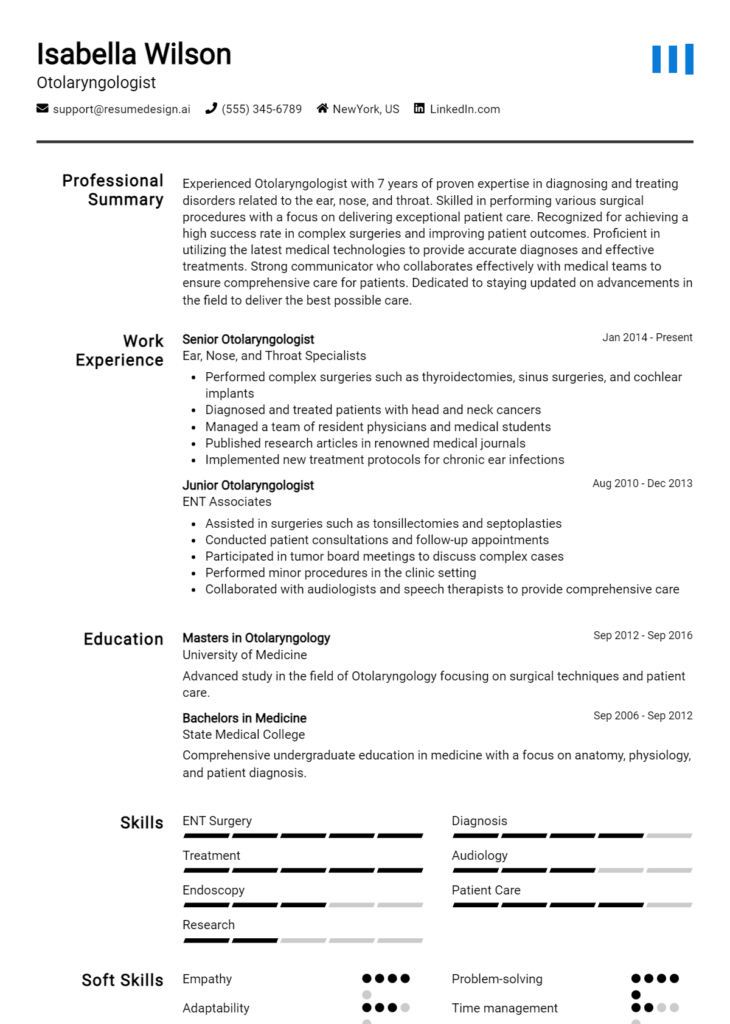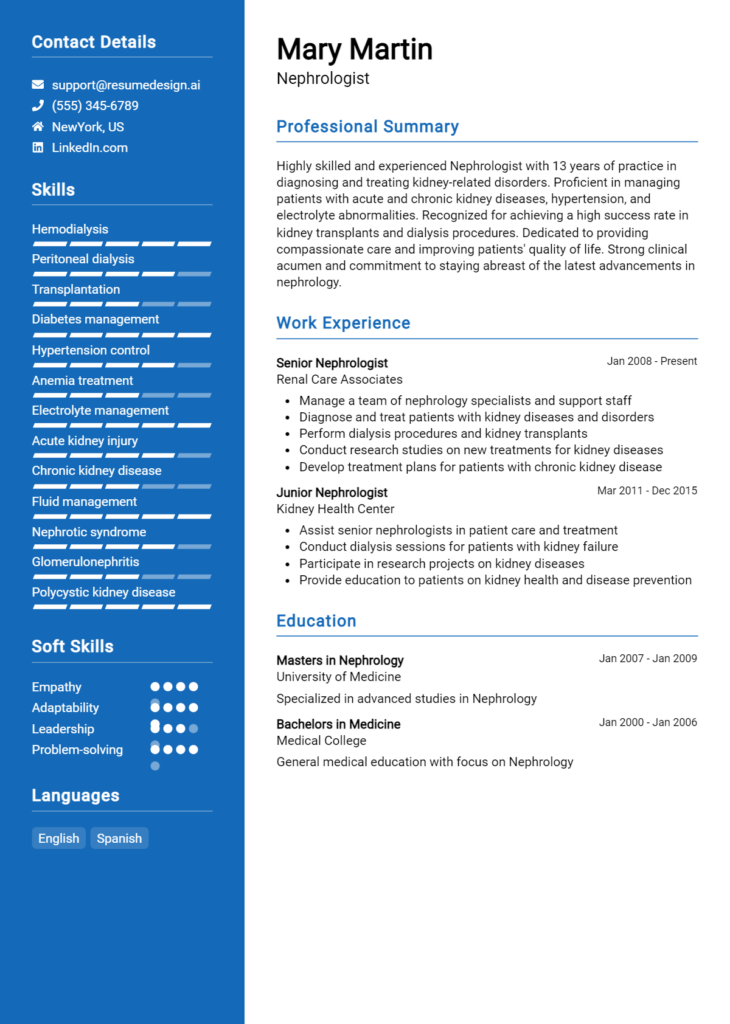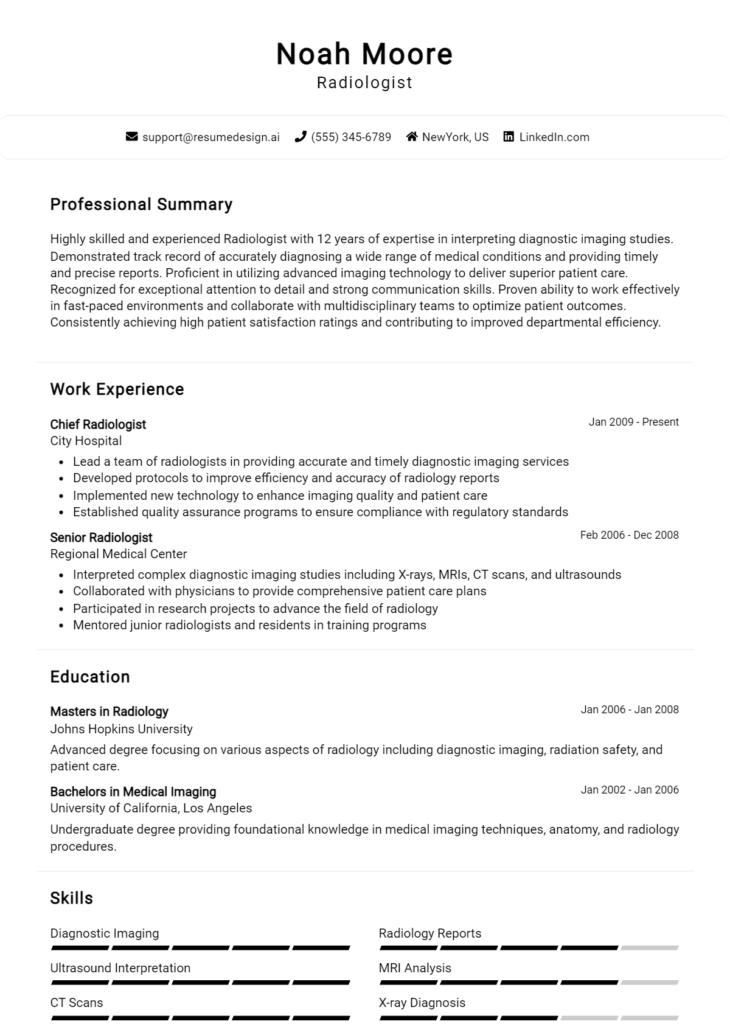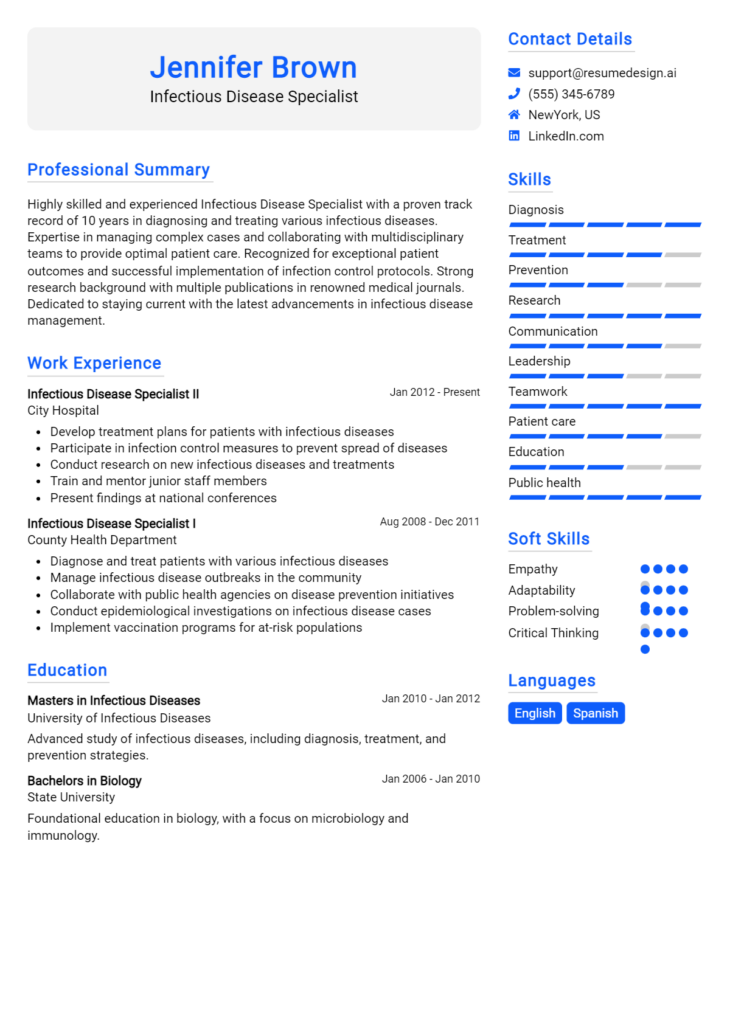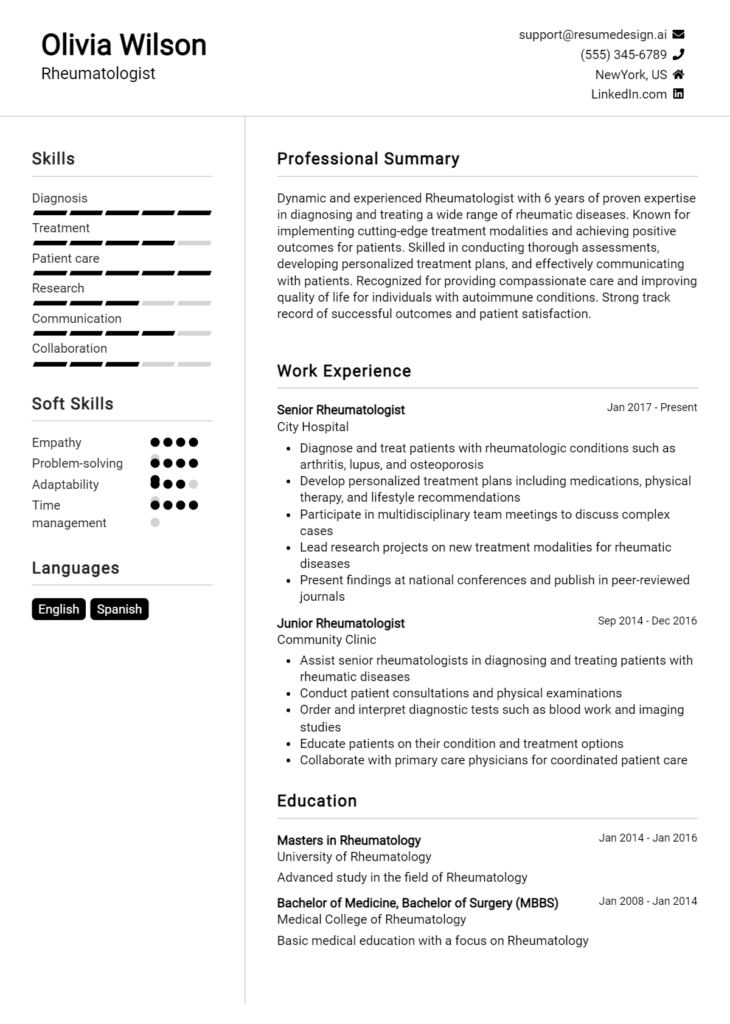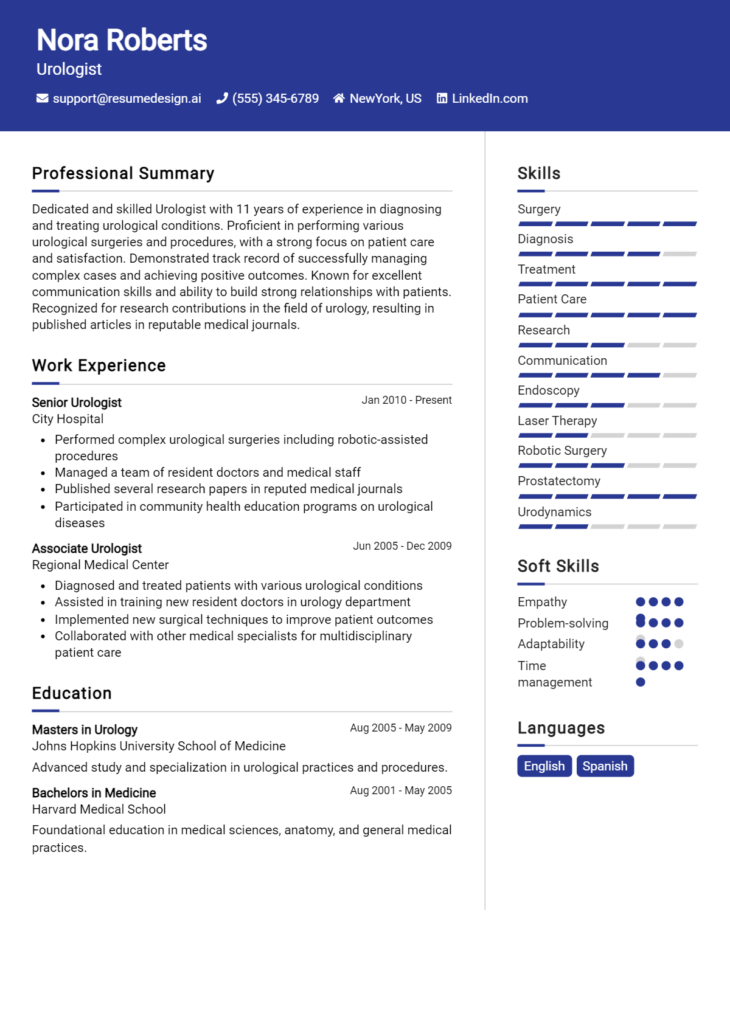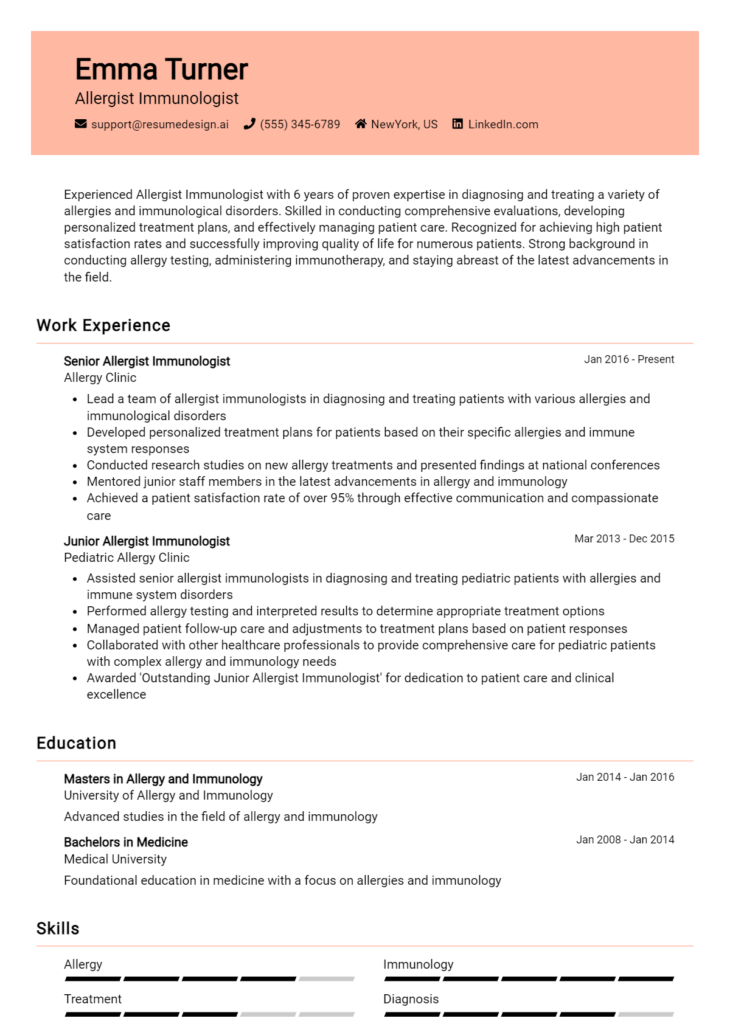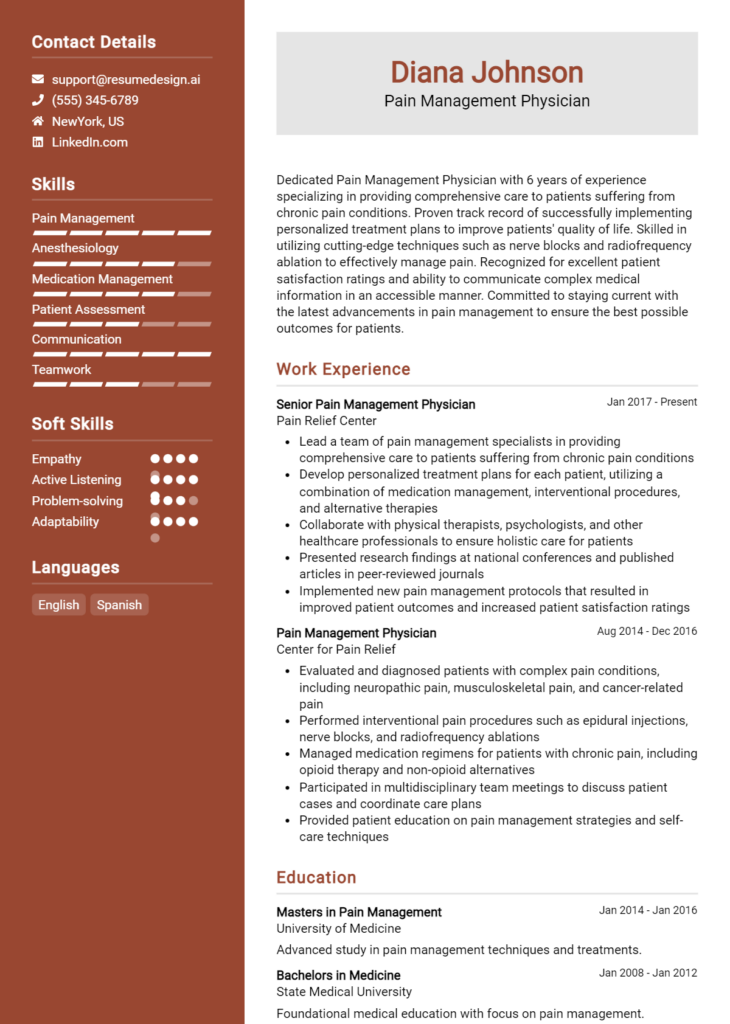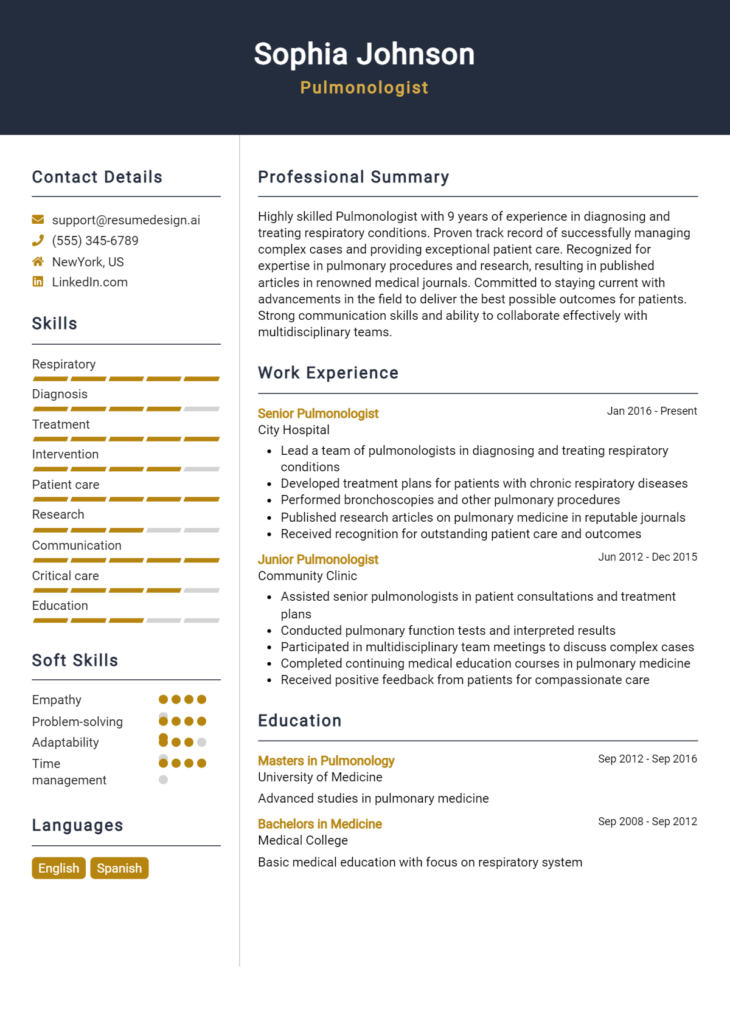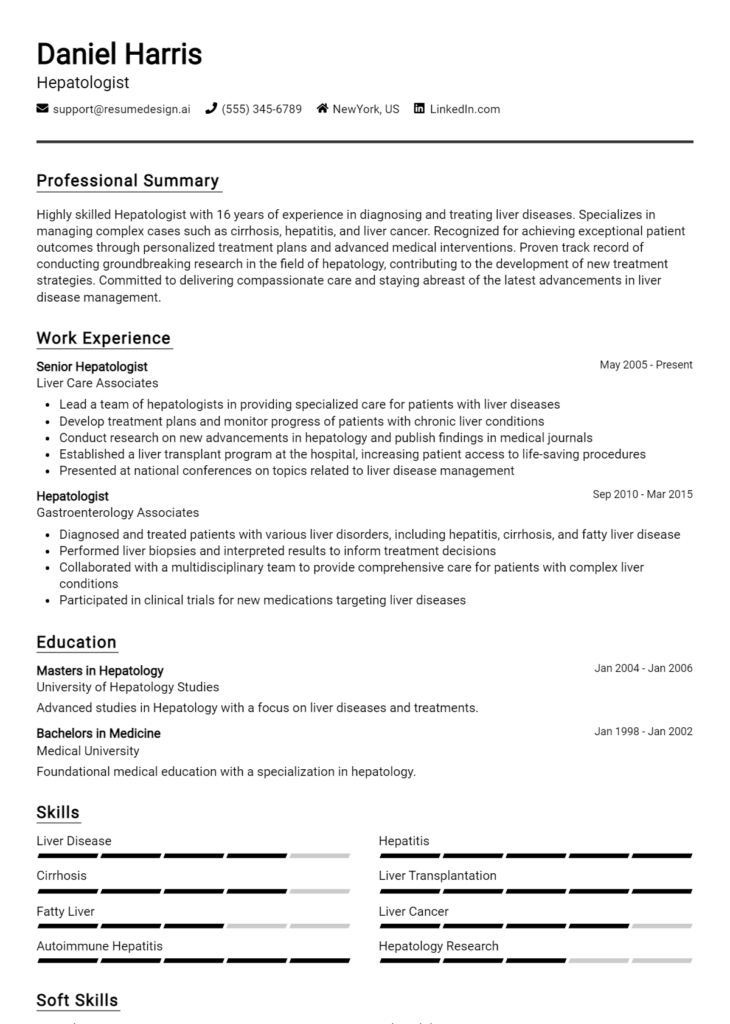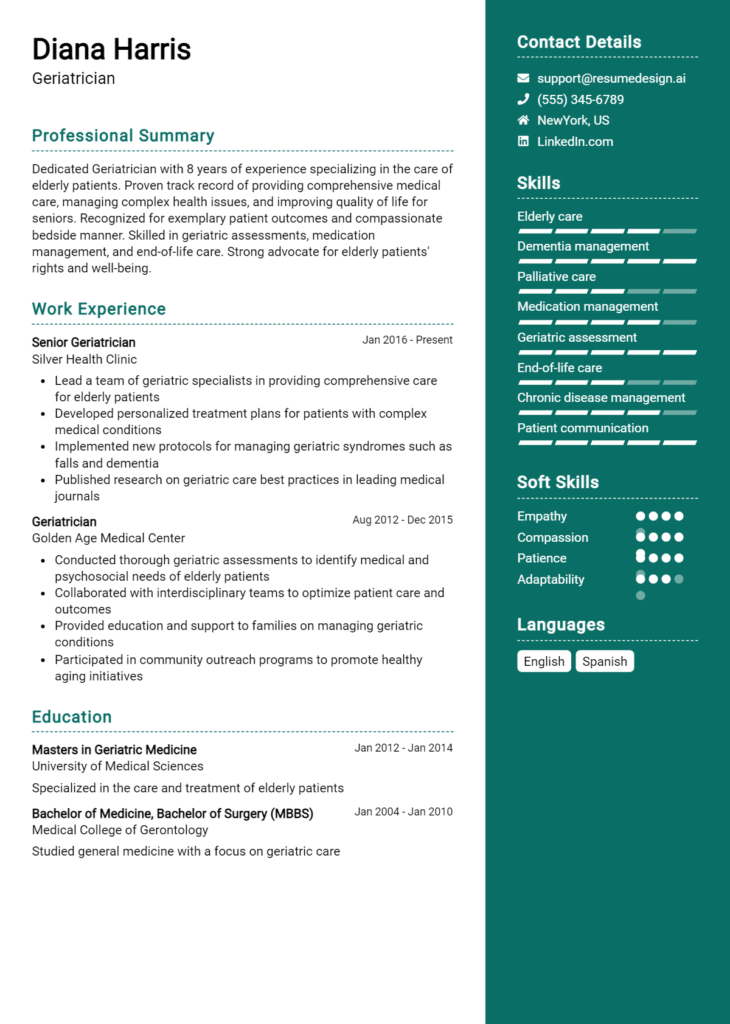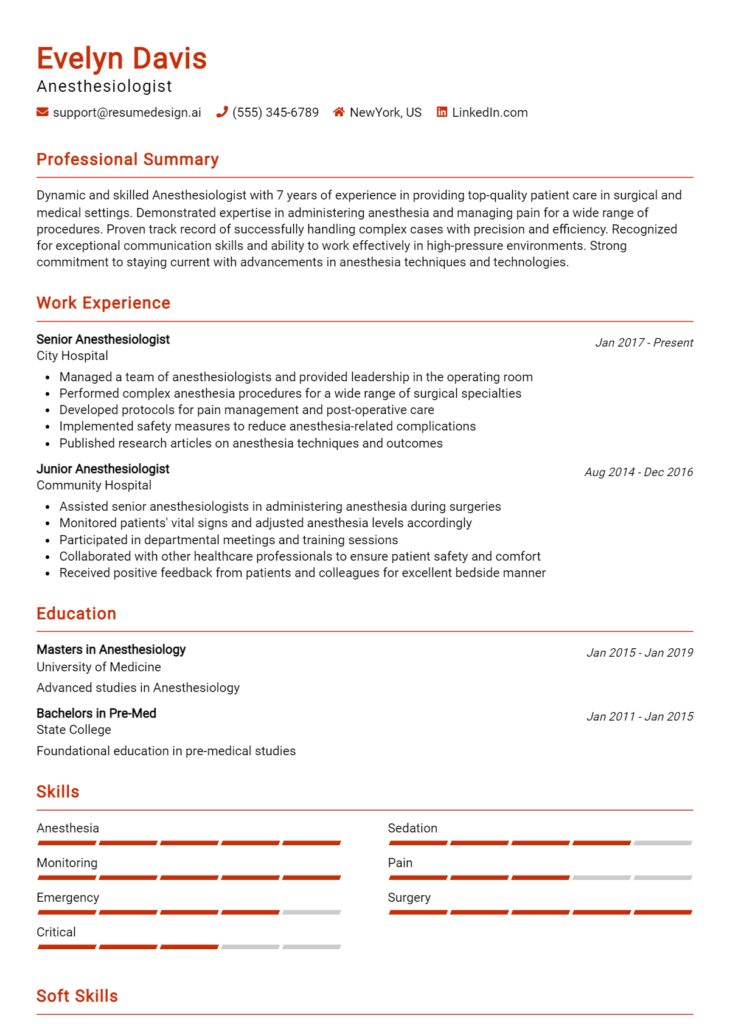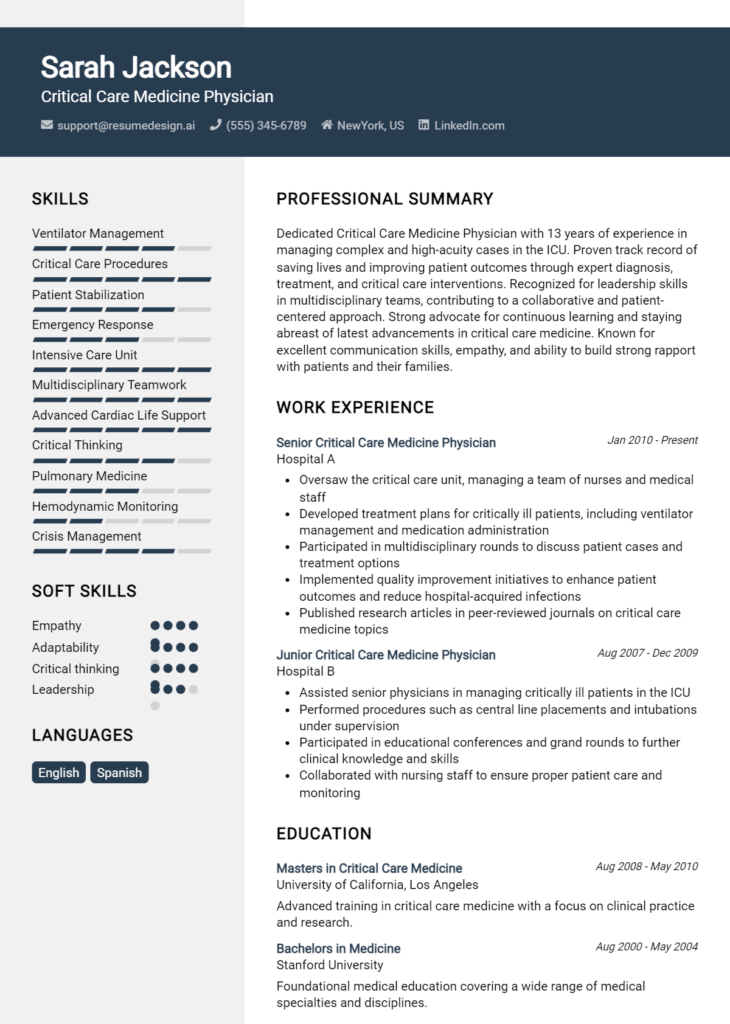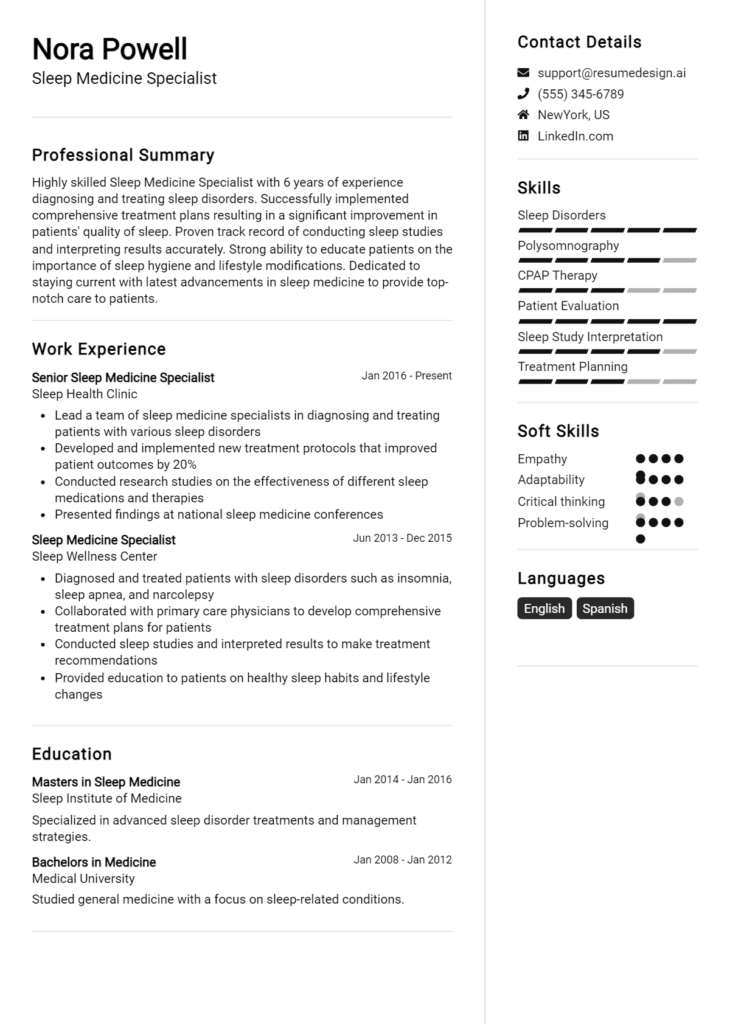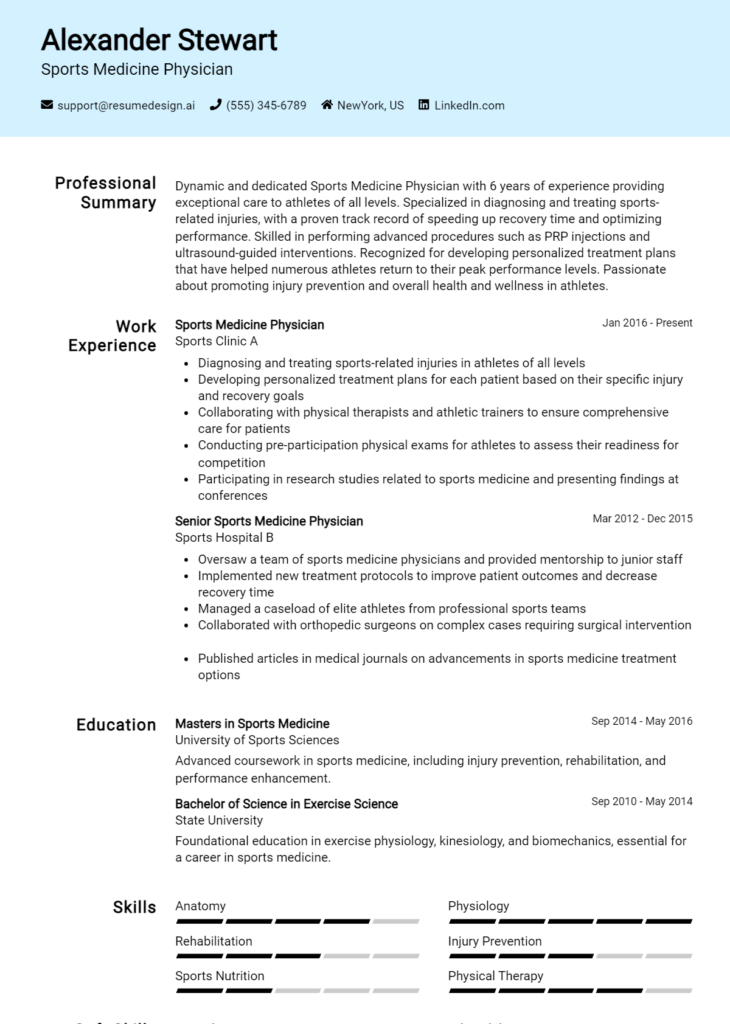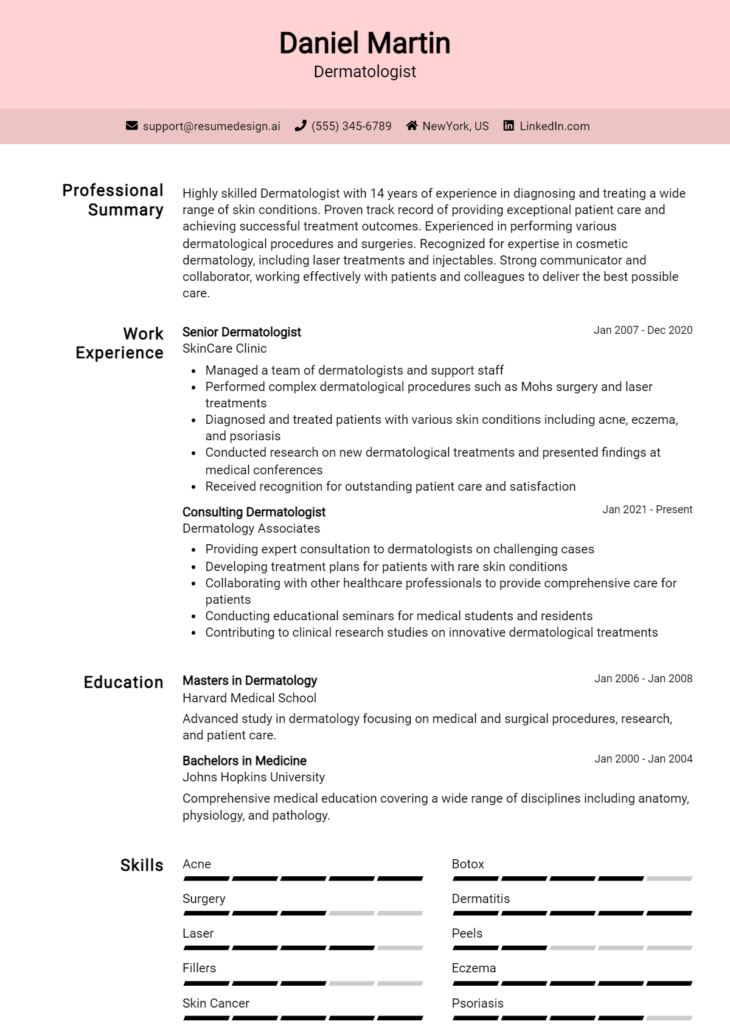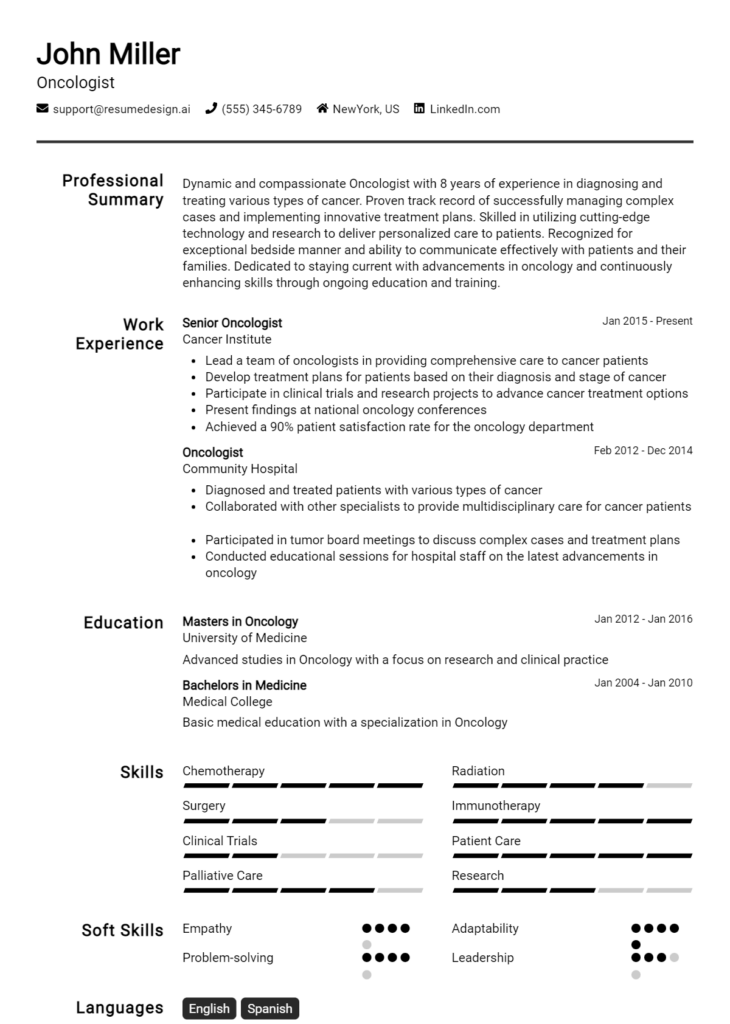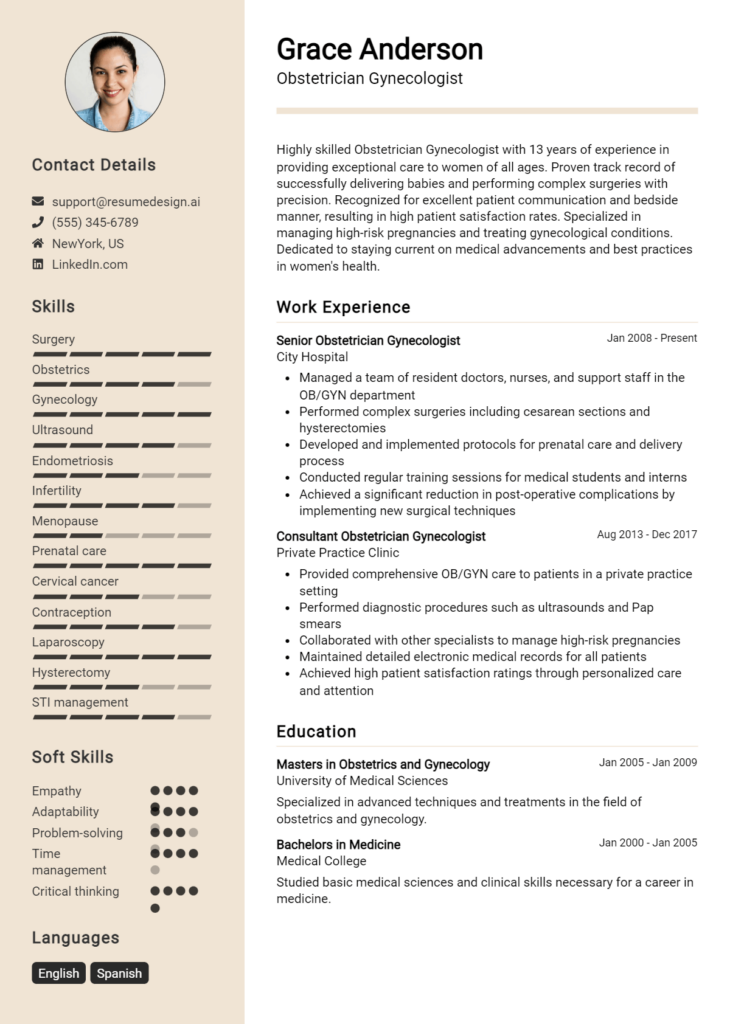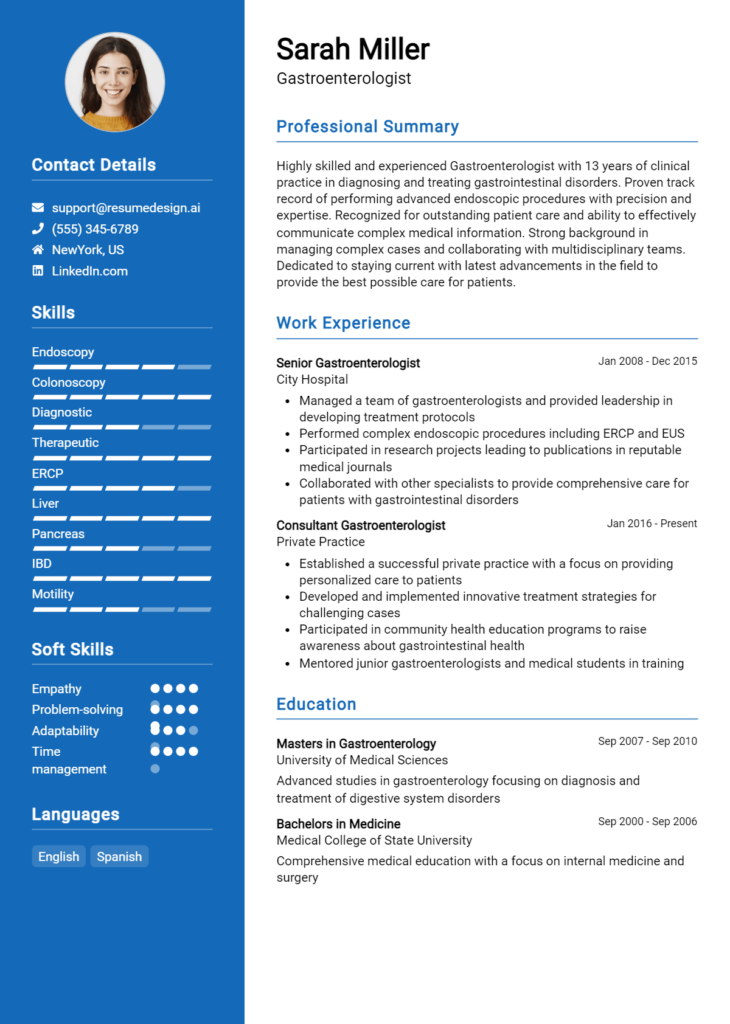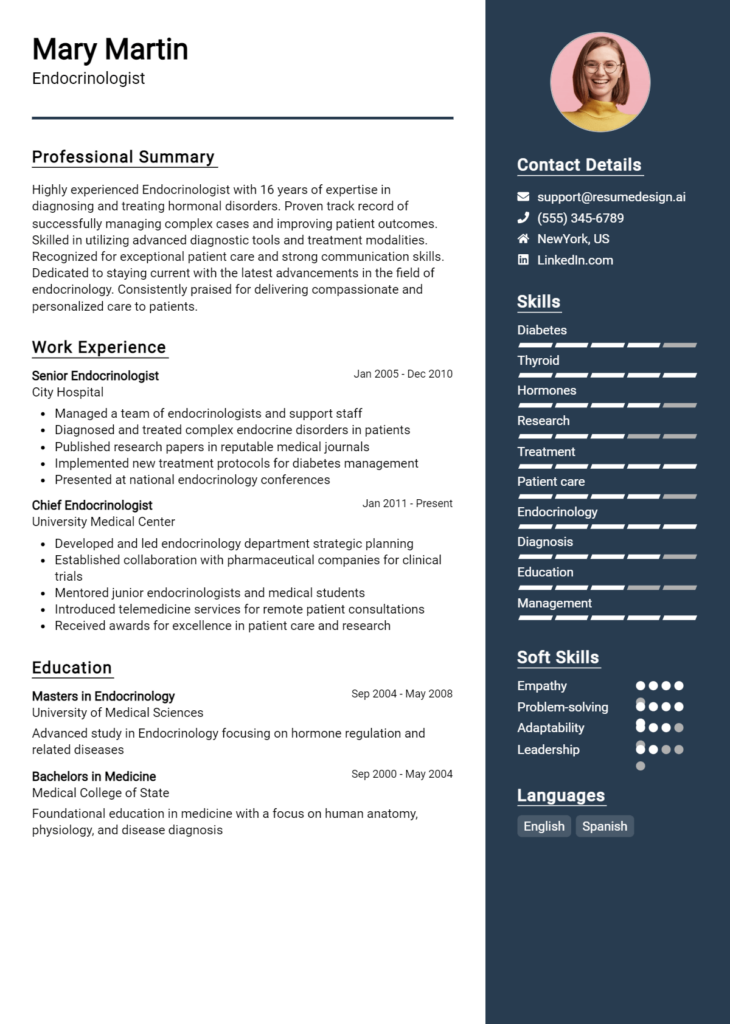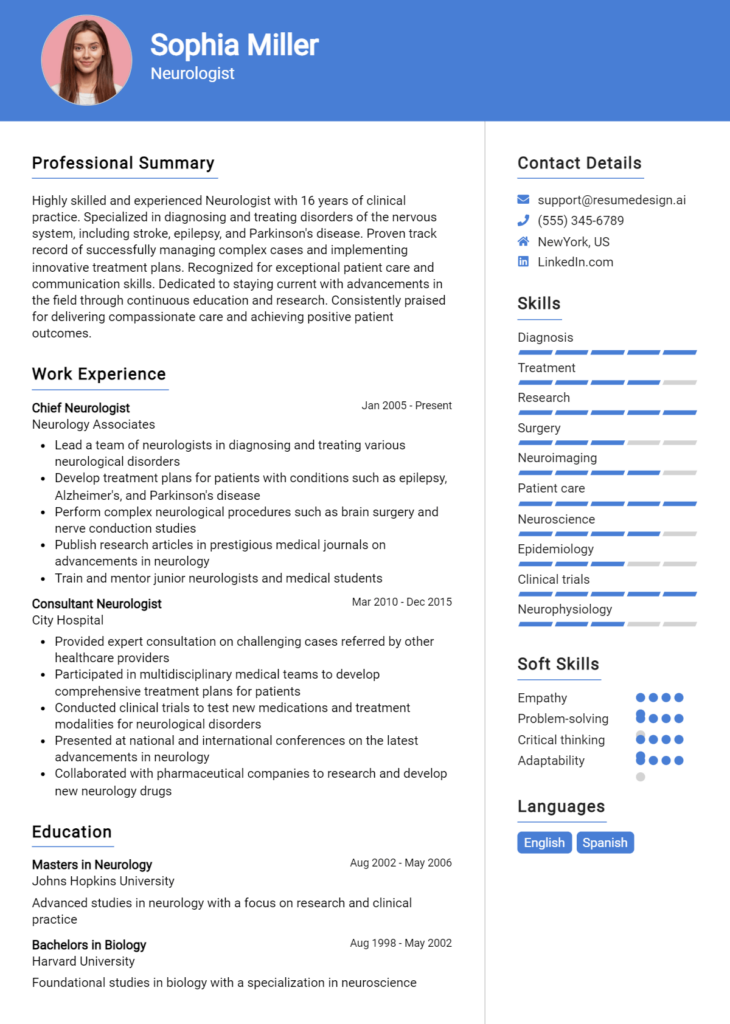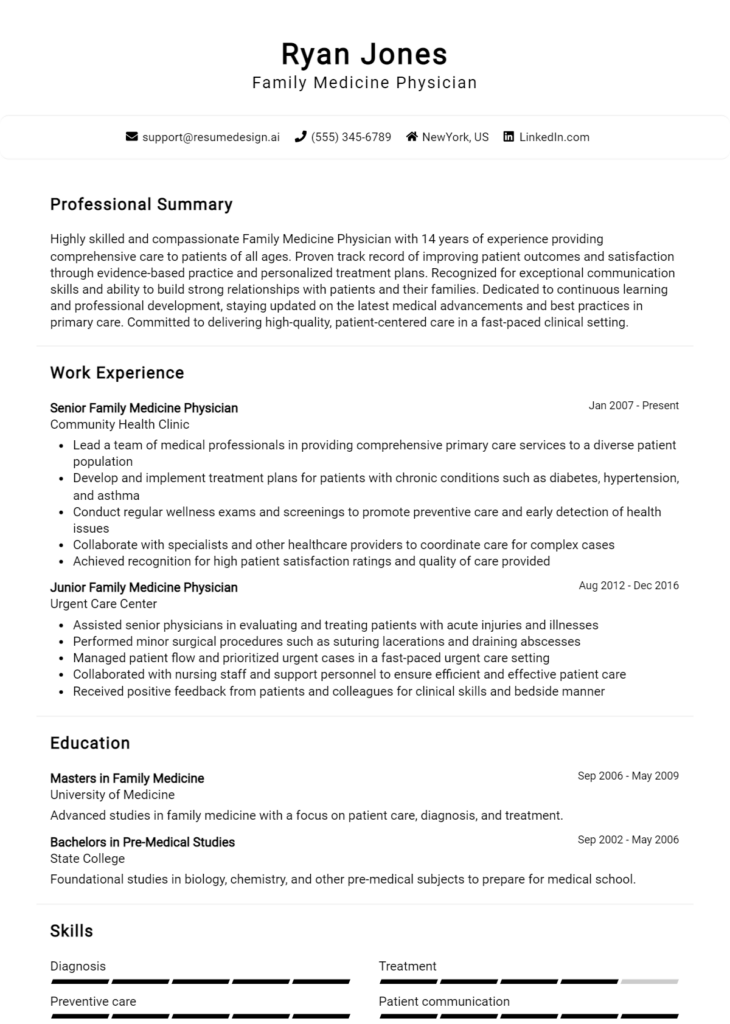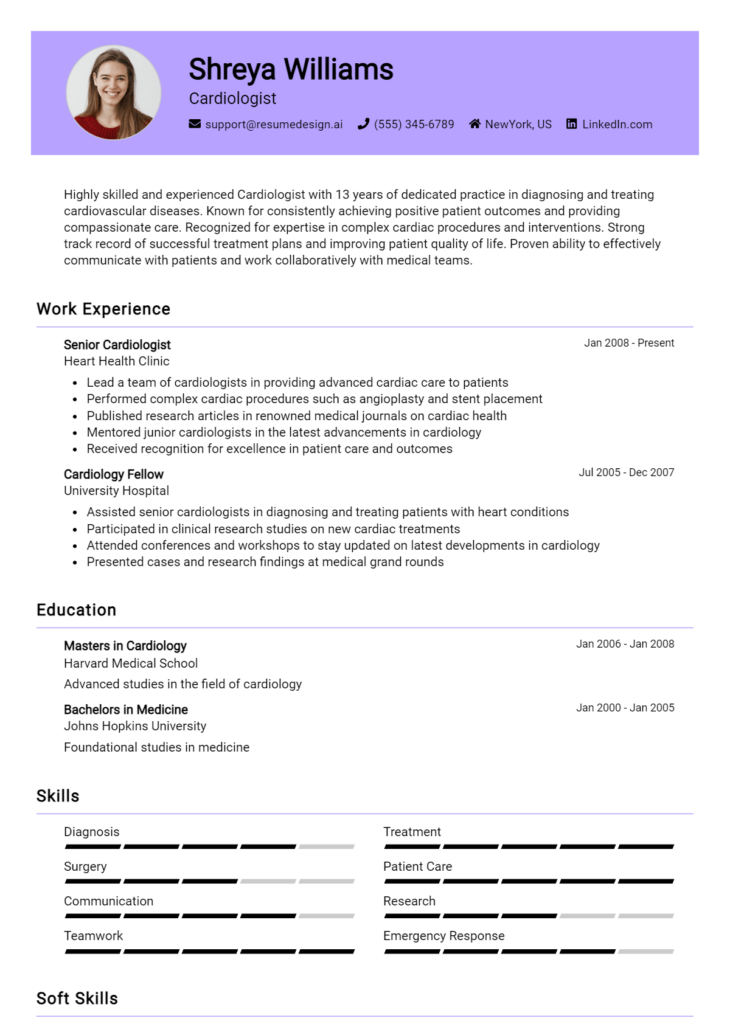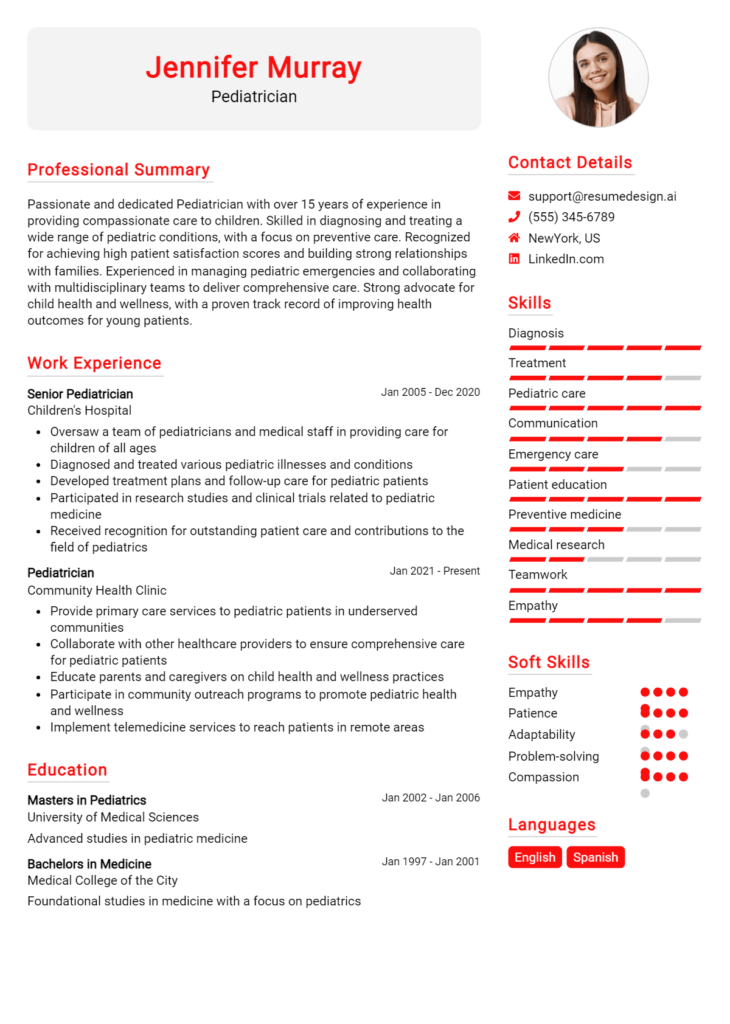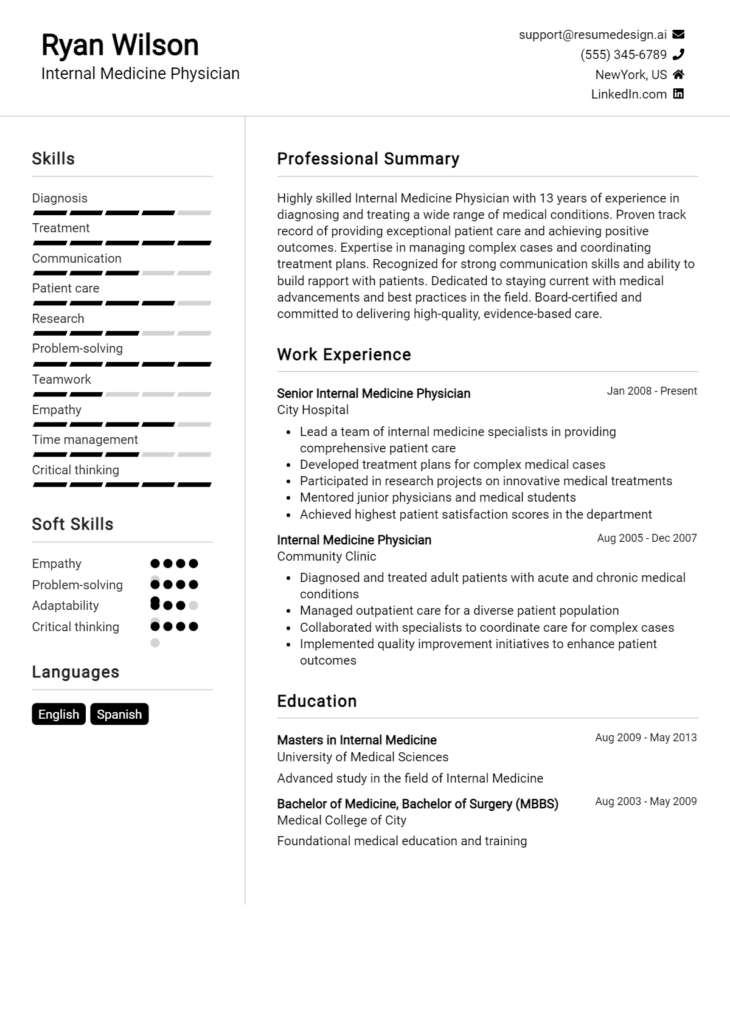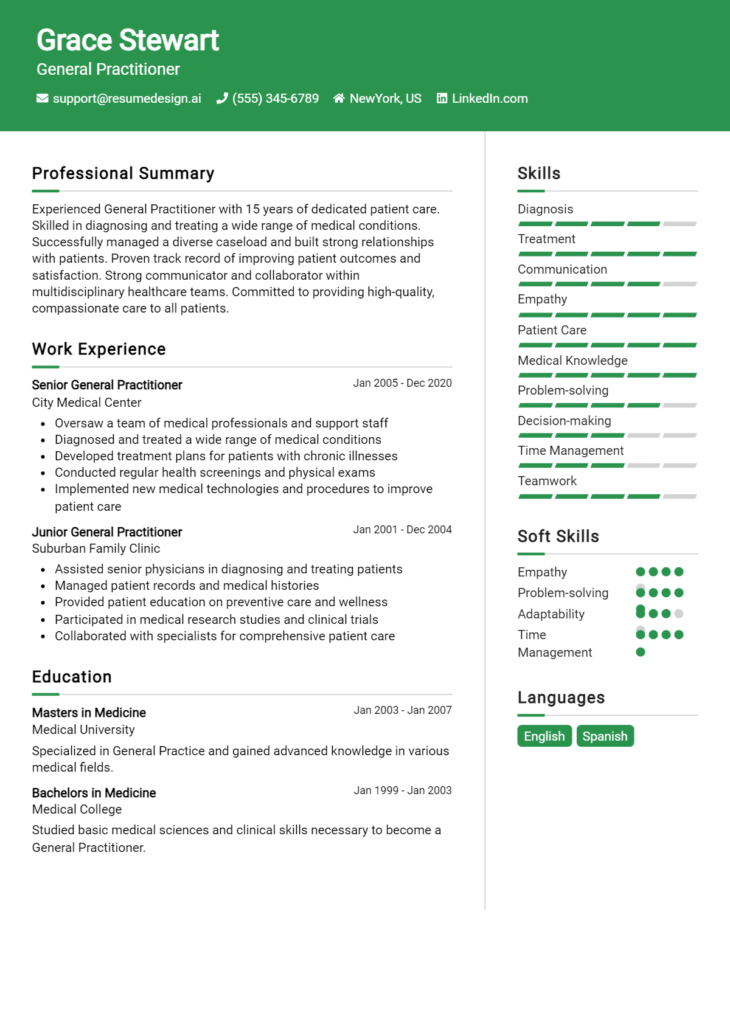Emergency Medicine Physician Core Responsibilities
Emergency Medicine Physicians are pivotal in delivering urgent medical care, efficiently bridging various departments such as surgery, radiology, and trauma services. Their core responsibilities include rapid assessment, diagnosis, and treatment of acute conditions, which necessitate strong technical skills, operational knowledge, and exceptional problem-solving abilities. These competencies are vital in achieving the organization’s goals, ensuring patient safety, and optimizing workflow. A well-structured resume can effectively highlight these qualifications, portraying the physician's readiness to tackle high-pressure situations with expertise.
Common Responsibilities Listed on Emergency Medicine Physician Resume
- Conduct thorough patient assessments and triage based on severity of conditions.
- Administer life-saving procedures and treatments in emergency situations.
- Collaborate with interdisciplinary teams to ensure comprehensive patient care.
- Interpret diagnostic tests and imaging results to inform treatment plans.
- Maintain accurate and detailed medical records and documentation.
- Provide education and support to patients and their families regarding treatment options.
- Participate in continuous medical education and training programs.
- Implement protocols to improve patient safety and quality of care.
- Manage and oversee emergency department staff and resources.
- Respond promptly to emergency calls and incidents within the hospital.
- Engage in research initiatives to enhance emergency medicine practices.
High-Level Resume Tips for Emergency Medicine Physician Professionals
In the competitive field of emergency medicine, a well-crafted resume is essential for making a lasting first impression on potential employers. Your resume serves as a critical marketing tool that showcases not only your clinical skills but also your achievements and unique qualifications as an Emergency Medicine Physician. It needs to reflect the high-stakes environment of emergency care, demonstrating your ability to thrive under pressure while delivering exceptional patient outcomes. This guide will provide practical and actionable resume tips specifically tailored for Emergency Medicine Physician professionals, helping you stand out in a crowded applicant pool.
Top Resume Tips for Emergency Medicine Physician Professionals
- Tailor your resume to each job description by emphasizing relevant skills and experiences that align with the specific role.
- Showcase your clinical experience by including details of the types of cases you have managed and the settings in which you have worked.
- Quantify your achievements where possible, such as the number of patients treated, successful interventions performed, or improvements in patient outcomes.
- Highlight industry-specific skills, including advanced life support certifications, trauma management experience, and proficiency in emergency procedures.
- Incorporate keywords from the job posting to improve the chances of passing through applicant tracking systems (ATS).
- Use a clear and professional format that prioritizes readability and allows hiring managers to quickly find important information.
- Include continuing medical education (CME) and relevant training to demonstrate your commitment to lifelong learning and professional development.
- Consider adding a summary statement at the top of your resume that succinctly captures your overall expertise and passion for emergency medicine.
- List any leadership roles, committee memberships, or teaching experiences that illustrate your dedication to the field and your ability to work collaboratively.
- Keep your resume concise, ideally one to two pages, focusing on the most relevant and impactful information.
By implementing these tips, you can significantly increase your chances of landing a job in the Emergency Medicine Physician field. A targeted, well-structured resume not only highlights your qualifications but also tells a compelling story of your professional journey, setting you apart from other candidates in this fast-paced and demanding environment.
Why Resume Headlines & Titles are Important for Emergency Medicine Physician
In the competitive field of emergency medicine, crafting an impactful resume is crucial for standing out to hiring managers. Resume headlines and titles serve as the first impression of a candidate, providing a succinct summary of their qualifications and expertise. A strong headline can immediately grab the attention of decision-makers, allowing them to quickly assess a candidate's suitability for the role. Therefore, it is essential that these headlines are concise, relevant, and directly related to the specific position being applied for, as they encapsulate the candidate's key strengths and sets the tone for the rest of the resume.
Best Practices for Crafting Resume Headlines for Emergency Medicine Physician
- Keep it concise: Aim for a headline that is brief yet informative.
- Be specific: Use terminology that reflects the emergency medicine field.
- Highlight key qualifications: Focus on your most relevant skills and experiences.
- Use action words: Start with strong verbs to convey competence and dynamism.
- Tailor to the job: Align the headline with the specific job description and requirements.
- Showcase accomplishments: Include quantifiable achievements to add credibility.
- Avoid jargon: Use clear language that is easily understood by all readers.
- Maintain professionalism: Ensure the tone reflects the seriousness of the medical profession.
Example Resume Headlines for Emergency Medicine Physician
Strong Resume Headlines
Dedicated Emergency Medicine Physician with 10+ Years of Experience in High-Pressure Environments
Board-Certified Emergency Medicine Specialist Skilled in Trauma Management and Patient Care
Compassionate Emergency Medicine Physician with Proven Record of Reducing Patient Wait Times by 30%
Experienced Emergency Medicine Physician Committed to Innovative Care and Team Leadership
Weak Resume Headlines
Doctor Looking for Work
Emergency Medicine Professional
Experienced Medical Professional
The strong headlines are effective because they provide specific information about the candidate's experience, skills, and accomplishments, making them memorable and relevant to hiring managers. They immediately communicate the candidate's value and expertise in emergency medicine, which is essential in a high-stakes field. In contrast, the weak headlines lack specificity and clarity, failing to convey any unique qualifications or insights into the candidate's abilities. As a result, they miss the opportunity to make a strong first impression, ultimately diminishing the chances of catching a hiring manager's attention.
Writing an Exceptional Emergency Medicine Physician Resume Summary
A well-crafted resume summary is crucial for Emergency Medicine Physicians, as it serves as the first impression for hiring managers. This short yet powerful introduction quickly captures attention by highlighting the candidate's key skills, relevant experiences, and significant accomplishments that align with the demands of the role. A strong summary should be concise and impactful, tailored specifically to the job being applied for, allowing candidates to stand out in a competitive field and conveying their potential value to the healthcare team.
Best Practices for Writing a Emergency Medicine Physician Resume Summary
- Quantify Achievements: Use numbers and statistics to demonstrate the impact of your work, such as patient outcomes or efficiency improvements.
- Focus on Skills: Highlight specific skills pertinent to emergency medicine, such as trauma management, critical care, or advanced life support.
- Tailor to Job Description: Customize your summary to reflect the responsibilities and requirements mentioned in the job posting.
- Use Action Verbs: Start sentences with strong action verbs to convey a sense of proactivity and effectiveness.
- Emphasize Relevant Experience: Include years of experience in emergency medicine, detailing any specialized training or certifications.
- Showcase Soft Skills: Don’t forget to mention interpersonal skills like teamwork, communication, and problem-solving which are vital in an emergency setting.
- Avoid Jargon: Keep the language clear and accessible; avoid overly technical terms that could confuse readers outside of your specialty.
- Keep It Brief: Aim for 2-4 sentences that deliver a strong message without overwhelming the reader with excessive detail.
Example Emergency Medicine Physician Resume Summaries
Strong Resume Summaries
Dynamic Emergency Medicine Physician with over 10 years of experience in high-pressure environments, successfully managing over 5,000 trauma cases with a 95% patient satisfaction rate. Proficient in advanced cardiac life support and ultrasound diagnostics, committed to delivering exceptional patient care.
Dedicated Emergency Medicine Physician with extensive experience in acute care settings, known for reducing patient wait times by 30% through efficient triage procedures. Skilled in team leadership and crisis management, with a focus on collaborative care approaches.
Compassionate and results-driven Emergency Medicine Physician, possessing board certification with a track record of improving emergency department throughput by 20%. Experienced in mentoring junior staff and implementing best practices for patient safety.
Weak Resume Summaries
Emergency Medicine Physician with experience in various healthcare settings. Looking for a position where I can use my skills.
I am a dedicated physician with a background in emergency medicine and a desire to provide good care. I am seeking new opportunities.
The strong summaries are considered effective because they provide quantifiable results, specific skills relevant to emergency medicine, and a clear demonstration of the candidate's impact in previous roles. In contrast, the weak summaries lack detail, do not quantify achievements, and appear generic, failing to engage the reader or highlight the candidate's unique qualifications for the position.
Work Experience Section for Emergency Medicine Physician Resume
The work experience section of an Emergency Medicine Physician resume plays a critical role in demonstrating the candidate's capabilities and accomplishments in a fast-paced healthcare environment. This section not only showcases technical skills and medical expertise but also highlights the physician's ability to lead teams, manage high-pressure situations, and ensure the delivery of high-quality patient care. By quantifying achievements and aligning experiences with industry standards, candidates can effectively convey their impact in previous roles, making them more appealing to potential employers.
Best Practices for Emergency Medicine Physician Work Experience
- Emphasize technical skills relevant to emergency medicine, such as advanced life support and trauma care.
- Quantify achievements with specific metrics, like patient outcomes or efficiency improvements.
- Highlight leadership roles in multidisciplinary teams and collaborative initiatives.
- Use action verbs to describe responsibilities and contributions clearly.
- Align experiences with current industry standards and best practices in emergency medicine.
- Include relevant certifications and training that enhance your qualifications.
- Tailor your work experience section to reflect the requirements of the job you're applying for.
- Showcase involvement in quality improvement projects or patient safety initiatives.
Example Work Experiences for Emergency Medicine Physician
Strong Experiences
- Led a team of 10 healthcare professionals in a high-volume emergency department, improving patient throughput by 20% within six months.
- Implemented a new triage protocol that reduced patient wait times by 30%, resulting in higher patient satisfaction scores.
- Conducted over 500 successful intubations and managed critical care for trauma patients, achieving a 95% survival rate.
- Collaborated with surgical teams to develop a rapid response protocol that decreased time to intervention for critical patients by 15%.
Weak Experiences
- Worked in an emergency department and performed various tasks.
- Assisted in patient care and occasionally led a small team.
- Participated in routine meetings to discuss patient cases.
- Handled emergency situations as needed without specific outcomes noted.
The examples classified as strong experiences are effective because they feature quantifiable results, specific achievements, and clear descriptions of leadership and collaboration within a medical context. In contrast, the weak experiences lack detail and measurable outcomes, making them less impactful and failing to convey the candidate’s true capabilities and contributions to the field of emergency medicine.
Education and Certifications Section for Emergency Medicine Physician Resume
The education and certifications section of an Emergency Medicine Physician resume is crucial for showcasing a candidate's academic qualifications, specialized training, and commitment to ongoing professional development. This section highlights the applicant's foundational knowledge and expertise in emergency medicine, demonstrating their preparedness to handle high-pressure situations effectively. By including relevant coursework, industry-recognized certifications, and specialized training, candidates can significantly enhance their credibility and align themselves with the essential requirements of the job role, making them stand out to potential employers.
Best Practices for Emergency Medicine Physician Education and Certifications
- Include only relevant degrees and certifications that directly pertain to emergency medicine.
- Clearly state the names of institutions and the dates of attendance or completion for transparency.
- Highlight advanced certifications such as Board Certification in Emergency Medicine or Advanced Trauma Life Support (ATLS).
- Detail any specialized training or fellowships, particularly those that focus on critical care or trauma.
- List relevant coursework that reflects an in-depth understanding of emergency medicine principles.
- Utilize a clean format that emphasizes key information for easy readability.
- Keep certifications up to date and mention any ongoing educational pursuits or upcoming certifications.
- Consider including memberships in professional organizations related to emergency medicine, such as ACEP.
Example Education and Certifications for Emergency Medicine Physician
Strong Examples
- M.D. in Emergency Medicine, Harvard Medical School, 2018
- Board Certified in Emergency Medicine, American Board of Emergency Medicine, 2019
- Advanced Trauma Life Support (ATLS), Certification obtained 2020
- Emergency Medicine Fellowship, Johns Hopkins University, 2021
Weak Examples
- Bachelor of Arts in English Literature, University of California, 2010
- Certification in Basic Life Support (BLS), expired 2019
- Online Course in First Aid and CPR, 2020
- High School Diploma, Graduated 2005
The strong examples are considered effective because they demonstrate relevant, advanced qualifications that align with the expectations of an Emergency Medicine Physician, showcasing both education and specialized training. In contrast, the weak examples lack relevance to the emergency medicine field or represent outdated certifications and general education that do not contribute to the candidate's preparedness for the role, which can diminish their competitiveness in job applications.
Top Skills & Keywords for Emergency Medicine Physician Resume
In the fast-paced and high-stakes environment of emergency medicine, having a well-crafted resume is crucial for standing out among a pool of qualified candidates. The skills highlighted in an Emergency Medicine Physician's resume not only reflect the individual’s clinical capabilities but also their ability to perform under pressure and effectively manage diverse patient needs. A strong emphasis on both hard and soft skills can demonstrate a physician's comprehensive understanding of emergency care, enhancing their appeal to potential employers. By showcasing the right skills, candidates can illustrate their readiness to tackle the unpredictable challenges that come with the territory of emergency medicine.
Top Hard & Soft Skills for Emergency Medicine Physician
Soft Skills
- Excellent communication
- Strong leadership abilities
- Adaptability and flexibility
- Empathy and compassion
- Teamwork and collaboration
- Problem-solving skills
- Critical thinking
- Decision-making under pressure
- Time management
- Conflict resolution
Hard Skills
- Advanced Cardiac Life Support (ACLS) certification
- Pediatric Advanced Life Support (PALS) certification
- Trauma assessment and management
- Proficiency in emergency procedures (e.g., intubation, central line placement)
- Knowledge of pharmacology and medication management
- Ability to interpret diagnostic tests (e.g., X-rays, CT scans)
- Familiarity with electronic medical records (EMR)
- CPR and First Aid certification
- Experience in patient triage
- Knowledge of public health protocols
For more information on how to articulate your skills and enhance your work experience, consider visiting the provided links for comprehensive guidance.
Stand Out with a Winning Emergency Medicine Physician Cover Letter
Dear [Hiring Manager's Name],
I am writing to express my interest in the Emergency Medicine Physician position at [Hospital/Clinic Name] as advertised on [Job Board/Website]. With a robust background in emergency medicine and a profound commitment to delivering high-quality patient care, I believe that my skills and experience make me an ideal candidate for this role. Having completed my residency at [Residency Program Name] and accumulated over [X years] of experience in diverse emergency settings, I am well-equipped to handle the fast-paced and unpredictable nature of emergency medicine.
Throughout my career, I have demonstrated my ability to assess and manage critical situations quickly and effectively. My experience in [specific procedures or technologies relevant to the position] has allowed me to provide exemplary care to patients with a wide range of conditions, from trauma to acute illnesses. I am also dedicated to fostering a collaborative environment within the healthcare team, ensuring that all staff members are empowered to contribute to patient outcomes. My commitment to continuous learning and improvement has kept me abreast of the latest advancements in emergency medicine, which I am eager to bring to your team.
At [Previous Employer/Institution Name], I successfully led initiatives aimed at improving patient flow and reducing wait times in the emergency department. By implementing evidence-based practices and engaging staff in performance improvement projects, we achieved a [specific achievement or metric]. I am excited about the opportunity to bring my passion for quality improvement to [Hospital/Clinic Name] and contribute to your mission of providing exceptional emergency care to the community.
Thank you for considering my application. I am eager to discuss how my background, skills, and enthusiasm for emergency medicine align with the goals of [Hospital/Clinic Name]. I look forward to the possibility of contributing to your esteemed team and making a positive impact in the lives of patients.
Sincerely,
[Your Name]
[Your Contact Information]
Common Mistakes to Avoid in a Emergency Medicine Physician Resume
When crafting a resume as an Emergency Medicine Physician, it's crucial to present your qualifications and experience effectively. However, many candidates make common mistakes that can hinder their chances of landing an interview. Understanding these pitfalls can help you create a compelling resume that stands out to hiring managers in a competitive field. Here are some frequent mistakes to avoid:
Using a Generic Template: Relying on a one-size-fits-all resume can make your application appear impersonal. Tailor your resume to highlight your unique experiences and skills relevant to emergency medicine.
Neglecting to Highlight Relevant Experience: Failing to emphasize your hands-on experience in emergency care can be detrimental. Ensure that your clinical rotations, residencies, and any specialized training are prominently featured.
Omitting Certifications and Licenses: Emergency Medicine Physicians require specific certifications, such as ACLS and ATLS. Leaving these out can signal a lack of preparedness for the role.
Overloading with Medical Jargon: While medical terminology is important, using excessive jargon can make your resume difficult to read. Aim for clarity and conciseness to keep the reader engaged.
Including Irrelevant Information: Adding unrelated work experience or skills can dilute the impact of your resume. Focus on experiences that directly relate to emergency medicine and patient care.
Ignoring Quantifiable Achievements: Providing vague descriptions of your duties without measurable outcomes can weaken your case. Use numbers and specific examples to demonstrate your impact, such as patient outcomes or efficiency improvements.
Not Tailoring for Each Position: Sending the same resume for different job applications can be a missed opportunity. Customize each resume to align with the specific requirements and values of the employer.
Neglecting Formatting and Presentation: A cluttered or poorly organized resume can distract from your qualifications. Use a clean format with clear headings and bullet points to enhance readability.
Conclusion
As an Emergency Medicine Physician, you play a critical role in the healthcare system, providing immediate care to patients in urgent situations. Your expertise in diagnosing and treating a wide variety of medical conditions makes you an invaluable asset in emergency rooms. Throughout this article, we explored the essential skills and qualifications necessary for success in this demanding field, including effective communication, quick decision-making, and a strong foundation in medical knowledge.
Moreover, we discussed the importance of showcasing your unique experiences and capabilities on your resume to stand out among other candidates. A well-crafted resume not only highlights your qualifications but also reflects your dedication to patient care and your ability to thrive in high-pressure environments.
Now is the perfect time to review your Emergency Medicine Physician resume and ensure that it accurately represents your skills and experiences. To assist you in this process, consider utilizing various resources available to enhance your application. Explore resume templates for guidance on layout and formatting, or use the resume builder for a user-friendly way to create a polished document. Additionally, reviewing resume examples can provide inspiration on how to effectively present your background, while cover letter templates can help you craft a compelling introduction that grabs the attention of potential employers.
Take action today and invest time in refining your resume to maximize your chances of landing your desired position in emergency medicine!

